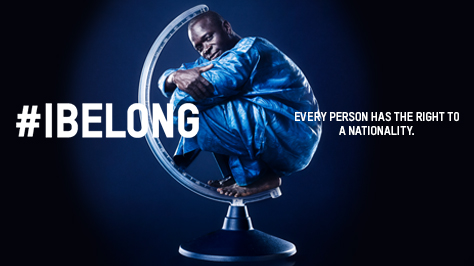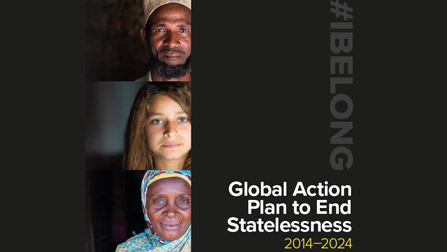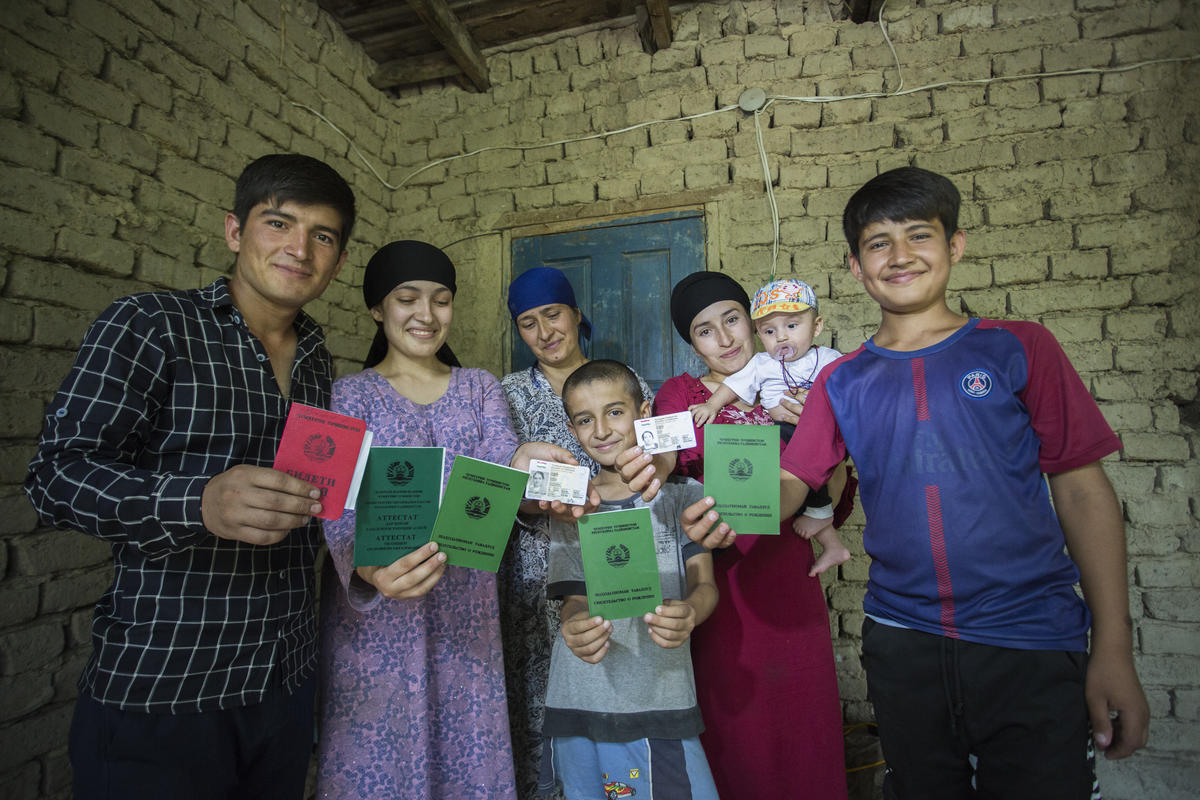Ending Statelessness
Today, millions of people around the world are denied a nationality. As a result, they often aren't allowed to go to school, see a doctor, get a job, open a bank account, buy a house or even get married.
Stateless people may have difficulty accessing basic rights such as education, healthcare, employment and freedom of movement. Without these things, they can face a lifetime of obstacles and disappointment.
At UNHCR, we are determined to end statelessness by 2024. Please take a minute to sign our open letter and become part of the #IBelong Campaign to end this injustice.
Governments establish who their nationals are. This makes them responsible for legal and policy reforms that are necessary to effectively address statelessness. But UNHCR, other agencies, regional organizations, civil society and stateless people all have roles to play in supporting their efforts.
To make a difference, we must work together. Each of the four areas of our work on statelessness – identification, prevention, reduction and protection – overlap with the expertise of other international organizations and NGOs, and we rely on the local knowledge and expertise of civil society groups, national human rights institutions, academics and legal associations. Their contribution to our work allows us to prepare and recommend the most effective solutions.
Collaboration with other UN agencies is also important. For example, the UN Children's Fund (UNICEF) has long worked on improving birth registration and civil registries, the UN Population Fund (UNFPA) can help governments design and implement national censuses, and the Office of the High Commissioner for Human Rights (OHCHR) supports monitoring of the human rights of stateless people.
Understanding Statelessness
How does nationality work?
People usually acquire a nationality automatically at birth, either through their parents or the country in which they were born. Sometimes, however, a person must apply to become a national of a country.
What is statelessness?
The international legal definition of a stateless person is “a person who is not considered as a national by any State under the operation of its law”. In simple terms, this means that a stateless person does not have a nationality of any country. Some people are born stateless, but others become stateless.
Statelessness can occur for several reasons, including discrimination against particular ethnic or religious groups, or on the basis of gender; the emergence of new States and transfers of territory between existing States; and gaps in nationality laws. Whatever the cause, statelessness has serious consequences for people in almost every country and in all regions of the world.
What are the causes of statelessness?
- Gaps in nationality laws are a major cause of statelessness. Every country has laws which establish under what circumstances someone acquires nationality or can have it withdrawn. If these laws are not carefully written and correctly applied, some people can be excluded and left stateless. An example is children who are of unknown parentage in a country where nationality is acquired based on descent from a national. Fortunately, most nationality laws recognize them as nationals of the state in which they are found.
- Another factor that can make matters complicated is when people move from the countries where they were born. A child born in a foreign country can risk becoming stateless if that country does not permit nationality based on birth alone and if the country of origin does not allow a parent to pass on nationality through family ties. Additionally, the rules setting out who can and who cannot pass on their nationality are sometimes discriminatory. The laws in 27 countries do not let women pass on their nationality, while some countries limit citizenship to people of certain races and ethnicities.
- Another important reason is the emergence of new states and changes in borders. In many cases, specific groups can be left without a nationality as a result and, even where new countries allow nationality for all, ethnic, racial and religious minorities frequently have trouble proving their link to the country. In countries where nationality is only acquired by descent from a national, statelessness will be passed on to the next generation.
- Finally, statelessness can also be caused by loss or deprivation of nationality. In some countries, citizens can lose their nationality simply from having lived outside their country for a long period of time. States can also deprive citizens of their nationality through changes in law that leave whole populations stateless, using discriminatory criteria like ethnicity or race.
Learn more

Sign and share our Open Letter to End Statelessness by 2024.

A comprehensive overview of statelessness and its devastating impact.

10 Actions which need to be undertaken to end statelessness by 2024.






